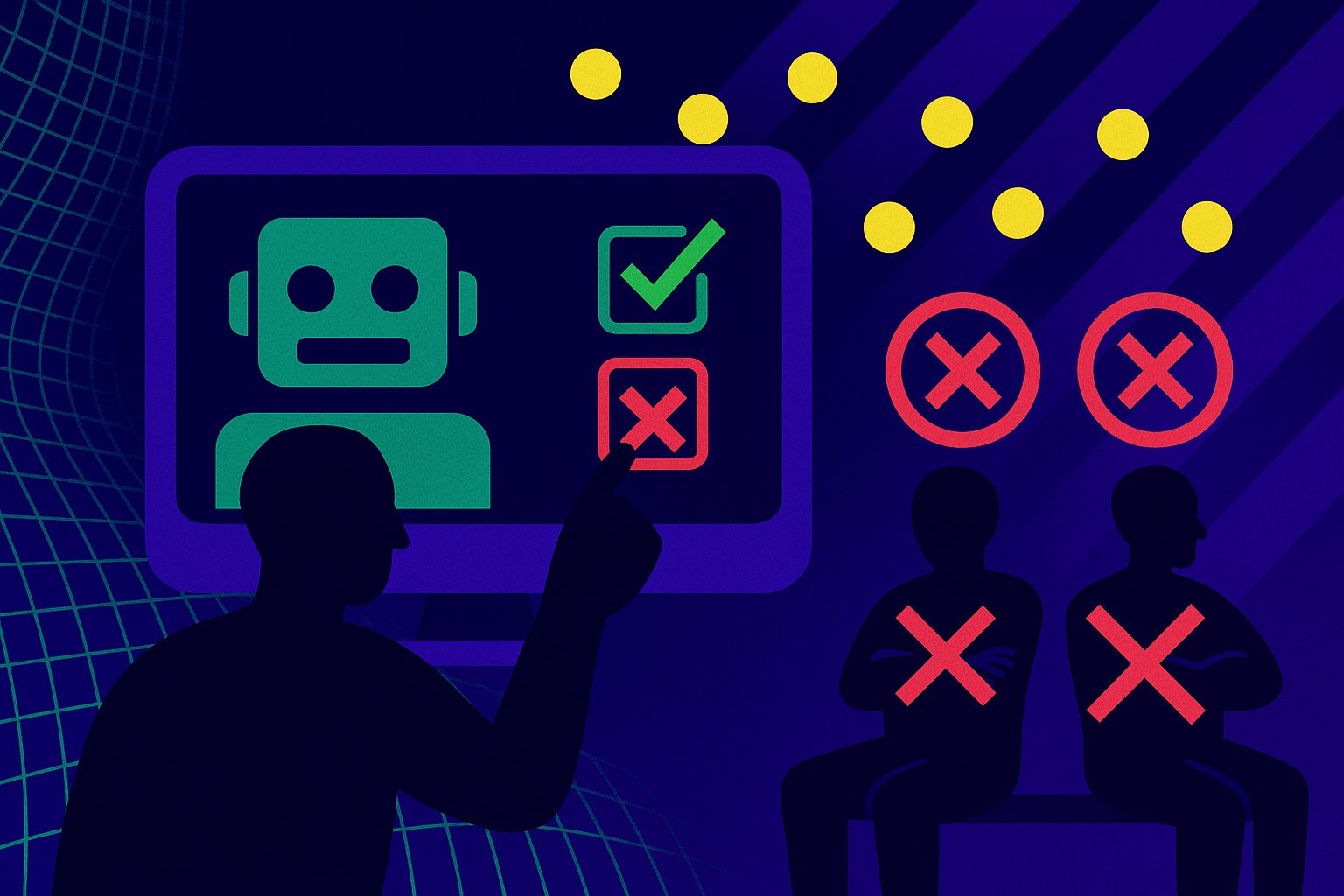Americans are among the least likely to review or edit AI-generated output

A global survey from EY finds that while most people in the United States see artificial intelligence as useful, very few take the time to review or edit what it produces.
According to EY's "AI Sentiment Index 2025", just 24 percent of U.S. respondents say they review AI-generated texts, images, or translations. That's one of the lowest rates in the study, and well below the global average of 31 percent.
At the same time, 74 percent of people in the U.S. believe that AI applications understand their needs, slightly above the global average of 73 percent. The data suggests that because Americans find AI both useful and accurate, they may be less inclined to check its work. If every AI-generated result had to be carefully reviewed, the technology would quickly lose much of its appeal and efficiency.
By comparison, review rates are much higher in South Korea (42 percent), China (40 percent), and India (40 percent). Germany comes in at 27 percent, while only Sweden and France report lower review rates than the U.S.
| Country | Review rate (%) |
|---|---|
| South Korea | 42 |
| China | 40 |
| India | 40 |
| United Arab Emirates | 39 |
| Saudi Arabia | 38 |
| Brazil | 31 |
| Worldwide | 31 |
| New Zealand | 29 |
| Japan | 29 |
| Canada | 28 |
| Australia | 27 |
| Germany | 27 |
| United Kingdom | 25 |
| USA | 24 |
| Sweden | 23 |
| France | 23 |
People in the U.S. are also unlikely to edit or revise AI-generated content. Only 14 percent say they fine-tune what AI produces, again placing the U.S. near the bottom internationally. In China and India, 32 percent of users regularly revise AI output. France, the U.K., and Japan report even lower rates than the U.S.
| Country | Post-processing rate (%) |
|---|---|
| China | 32 |
| India | 32 |
| United Arab Emirates | 29 |
| Saudi Arabia | 27 |
| South Korea | 19 |
| Worldwide | 19 |
| Sweden | 16 |
| Brazil | 16 |
| Australia | 15 |
| Germany | 15 |
| New Zealand | 14 |
| Canada | 14 |
| USA | 14 |
| Japan | 13 |
| United Kingdom | 13 |
| France | 12 |
The EY AI Sentiment Index 2025 is based on a global survey of more than 15,000 people in 15 countries conducted between December 2024 and February 2025. The research used random stratified sampling with quotas for age, gender, and location to ensure representative results in each country. In addition to the survey, chat-based interviews were held with 135 participants in February 2025 to explore attitudes toward AI in more detail. All results were statistically weighted to give each country equal influence in the findings.
Americans show caution toward AI in sensitive areas
People in the U.S. tend to be skeptical about using AI in medical settings. According to the survey, 49 percent of U.S. respondents say they would feel comfortable with AI predicting potential health problems based on their data. That's below the global average of 57 percent, and much lower than in places like India (76 percent) or China (74 percent).
Even fewer in the U.S. are open to basic medical consultations with an AI "general practitioner." Just 31 percent say they would consider it, compared to a global average of 37 percent. In China and India, 61 percent of respondents are comfortable with this kind of AI-driven care.
Concerns about AI-powered misinformation are widespread as well. Seventy-five percent of Americans say they are worried about fake news and deepfakes—the same figure as the global average.
AI News Without the Hype – Curated by Humans
As a THE DECODER subscriber, you get ad-free reading, our weekly AI newsletter, the exclusive "AI Radar" Frontier Report 6× per year, access to comments, and our complete archive.
Subscribe nowAI news without the hype
Curated by humans.
- Over 20 percent launch discount.
- Read without distractions – no Google ads.
- Access to comments and community discussions.
- Weekly AI newsletter.
- 6 times a year: “AI Radar” – deep dives on key AI topics.
- Up to 25 % off on KI Pro online events.
- Access to our full ten-year archive.
- Get the latest AI news from The Decoder.